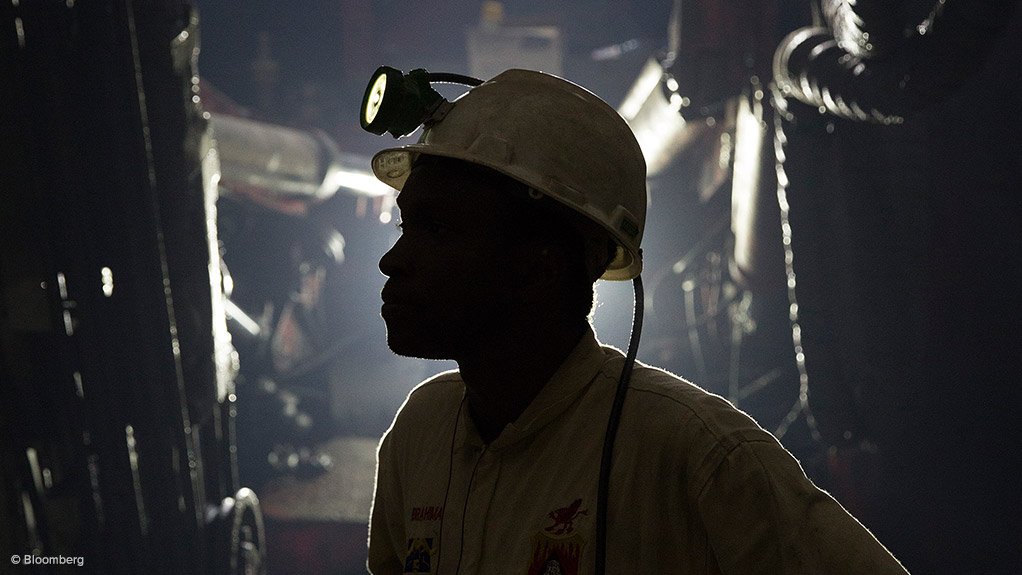JOHANNESBURG (miningweekly.com) – Entry-level workers who, under the leadership of the Association of Mineworkers and Construction Union (AMCU), have been striking since January 23 at South Africa’s top three platinum producers would need total after tax income increases of 37% to make up for the money lost to them while on strike, economist Mike Schüssler said on Wednesday.
Releasing the 2014 Uasa Employment Report Volume 13, Schüssler said the average entry-level platinum mineworker had lost about R26 775 in wages, R5 016 in benefits and about R10 710 in overtime and bonuses – which usually amounted to 40% on top of the actual cash wages – bringing the total gross income lost by each worker to R42 501.
Further, if it were assumed that the average platinum mineworker had the same debt level as the average South African household, the interest on these unpaid instalments would add another R3 414 to the total amount lost by the workers.
AMCU and platinum producers Anglo American Platinum, Impala Platinum and Lonmin were currently not in discussions aimed at reaching an agreement, however, after AMCU indicated on Tuesday that its members rejected the latest wage offer, the platinum producers on Wednesday said they had started relaying their revised wage offer directly to striking workers.
The companies’ latest wage offer, made last Thursday, comprised a raise of up to 10% and other increases that would take the minimum pay package – the basic wage including allowances – to R12 500 a month by July 2017.
Meanwhile, Schüssler pointed out that over the past two years, the total workdays lost in the platinum sector exceeded eight-million, which translated into more than 40 days lost for every worker.
“This is probably the biggest financial loss as well as the biggest workday loss ever in the private sector,” he said.
In contrast, a typical strike in Organisation for Economic Cooperation and Development member-countries only lasted for about three days, Schüssler said, adding that strikers in these countries were usually also paid, at least partially, from union strike funds.
However, AMCU, did not have a strike fund prior to embarking on the 14-week strike in the platinum sector, he noted, pointing out that while the union had since deposited R1-million into the fund, this amount was inadequate as it translated into less than R5 a month for every worker.
“[The strike] is taking people into poverty,” Schüssler stated.
Meanwhile, the Uasa report also pointed out that the strike was not only negatively affecting the striking workers but nonstriking employees, who were also being impacted as they were losing their overtime and production bonuses, which amounted to an estimated R15 700 for every nonstriking worker from the start of the strike to date.
This translated into about R5 000 a month, which was about one-quarter of these workers’ income, meaning that they too would have to forgo some payments and incur debt.
Further, mining contractors, while they were not striking, were also not working , as the mines were not producing.
It was estimated that about 19 000 contractors were affected by the platinum strike and had lost about R1-billion in income collectively.
In a broader sense, suppliers and retailers were also being affected by the strike, bringing the total number of workers estimated to be affected by the strike to between 165 000 and 200 000.
Schüssler further pointed out that since 2012, about 8% of all jobs in the platinum industry had been made redundant, stating that it was “very likely that 30% of all jobs could [be cut] in the next four years before the final increase”, as it was likely that mines would look towards greater levels of mechanisation.
He stated that the affected mining houses would also probably make losses this year, which would drive them even more towards mechanisation.
Further, declines in mining production would also put the current account under pressure once again, Schüssler said, stating that the country would probably also not reach its forecast gross domestic product growth of 3.53% for 2014.
Actual growth for the year was now expected to be closer to 2.43%, or even less than 2% should the strike not be resolved soon.
“The cost of the strike is now well over R15-billion and, as [the platinum sector] is a primary industry, almost all [the losses would impact directly on the] GDP as well as exports. This means that GDP [as a result of the platinum strike] will be 0.4% lower directly, but more likely about 0.6% lower, than would otherwise [have been] the case,” Schüssler forecast.
FUTURE
Addressing the future outlook of the platinum industry, he said he did not expect South Africa to see another strike of this magnitude in the next two decades.
Schüssler added that unions with a “more moderate view” were also expected to come to the fore in the industry and that AMCU was not expected to be the majority union anymore in a year’s time.
In South Africa as a whole, strikes were also expected to play a smaller role in wage negotiations over the next few years, as workers would refuse to give up the gains that had already been made, with long strikes becoming rare.
Government was also expected to start siding more with industry and not the workers as it realised that economic losses did not help to create jobs, explained Schüssler, highlighting job creation was currently South Africa’s biggest challenge.
EMAIL THIS ARTICLE SAVE THIS ARTICLE
To subscribe email subscriptions@creamermedia.co.za or click here
To advertise email advertising@creamermedia.co.za or click here











